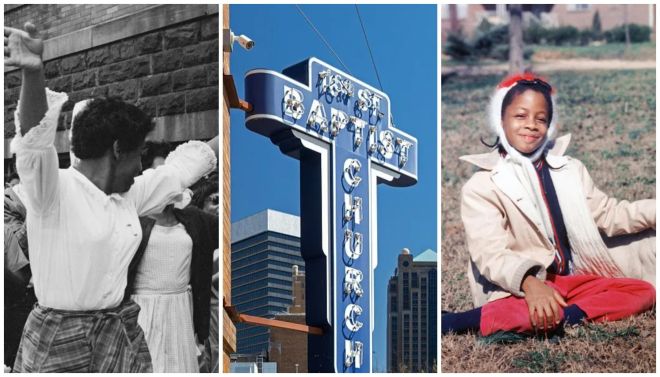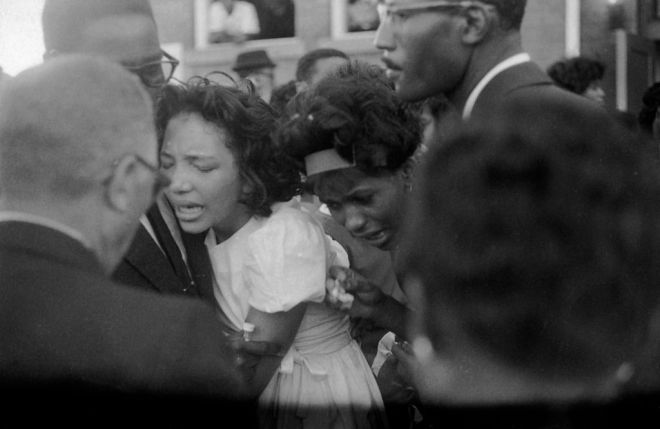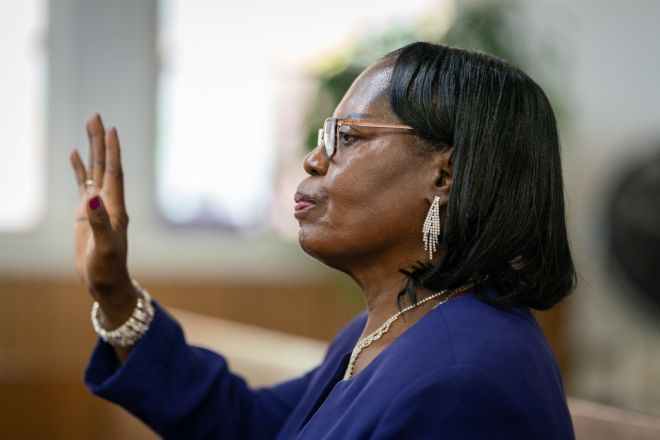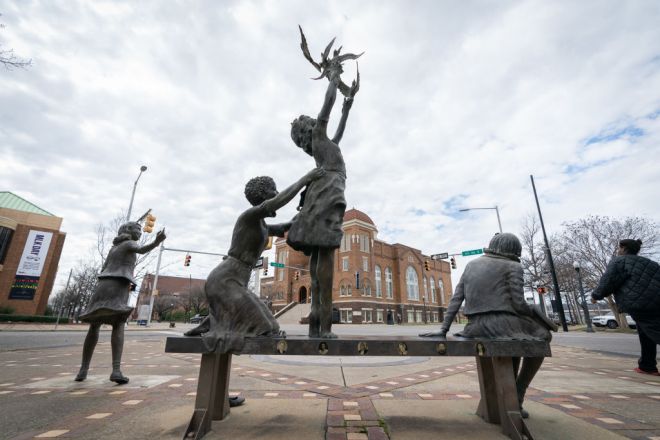Honoring The Legacy Of The 16th Street Baptist Church Bombing
Honoring The Legacy Of The 16th Street Baptist Church Bombing And Its Surviving Hero, Sarah Collins-Rudolph
On the anniversary of the 16th Street Baptist Church bombing, Sarah Collins-Rudolph’s courage as the sole survivor inspires, symbolizing the ongoing fight for justice and healing from this tragic chapter.
Share the post
Share this link via
Or copy link

Sept.15, 2025, marked the 62nd anniversary of one of the darkest moments in American history — the bombing of the 16th Street Baptist Church in Birmingham, Alabama. The violent act, carried out by members of the Ku Klux Klan, killed four young Black girls and severely injured another. The attack shocked the nation, galvanized the civil rights movement, and left a survivor still fighting for justice decades later.
A Morning of Innocence Turned to Horror.
On the morning of Sept. 15, 1963, five young girls gathered at the 16th Street Baptist Church for what began as a joyful Sunday. They were preparing for the church’s youth day program after attending their regular Sunday school classes.
Love MadameNoire? Get more! Join the MadameNoire Newsletter
We care about your data. See our privacy policy.

“We were having so much fun. We were throwing around Janie’s little purse. She had a purse shaped like a football. We were throwing it and we laughed all the way,” Sarah Collins-Rudolph, the sole survivor from the attack, recalled of her morning walk to church with her sister, Addie Mae Collins, and friend Janie, in an account shared on her personal website.
Collins-Rudolph attended church with her sister, along with friends Carole Robertson, Cynthia Wesley, and Carol Denise McNair. Addie Mae, Carole, and Cynthia were 14 years old; Carol Denise was just 11. But what started as a normal day ended in tragedy when a dynamite bomb, planted by white supremacists in the church’s basement, tore through the building in a matter of seconds, killing the four girls instantly.
RELATED CONTENT: Malcolm X Centennial: 5 Women Who Helped Forge His Path To Greatness

The blast left Collins-Rudolph, then 12, with 26 pieces of glass embedded in her face. She lost her right eye and has lived with the physical and emotional scars ever since.
“I remember every day because the scars on my face remind me of everything,” she told The Guardian in a 2015 interview. “You know, they had to remove my right eye, and I got a prosthetic eye. So it’s something that I just think of every day.”
The last moment Collins-Rudolph remembers before the blast is seared into her memory.
“Denise asked Addie to tie the sash on her dress,” she said in a recent interview with WDAM published Monday. “And that’s when the bomb went off.”

That tragic moment was later honored with the installation of the Four Spirits statue in Kelly Ingram Park, located just across the street from the 16th Street Baptist Church in Birmingham, Alabama.
The explosion not only robbed Collins-Rudolph of her sister but also plunged her into years of medical treatments and financial hardship. According to her interview with The Guardian, she bore the cost of her medical expenses without assistance or acknowledgment from the state for decades.
A Crime That Shook a Nation.
The bombing targeted a church that had become a key organizing site for civil rights activists. At a time of intense racial segregation and tension across the South, the 16th Street Baptist Church stood as a symbol of Black resilience. In May of that year, Martin Luther King had famously used the church as the starting point for the Children’s Crusade, a campaign where more than a thousand Black students marched to peacefully protest against segregation.

Although the crime shocked the conscience of the nation and helped spur the passage of the Civil Rights Act of 1964, justice was slow and elusive. By 1965, the FBI had identified four primary suspects: Robert E. Chambliss, Bobby Frank Cherry, Herman Frank Cash, and Thomas E. Blanton, Jr., all members of the Ku Klux Klan. However, as the FBI website notes, “witnesses were reluctant to talk and physical evidence was lacking.” As a result, no federal charges were filed at the time.
Yet, years later, in 1970, Alabama Attorney General Robert Baxley reopened the case. Seven years after that, a jury found Klansman Robert Chambliss guilty of the 1963 bombing and sentenced him to life in prison for the murder of McNair. In 1995, the FBI launched its own investigation, which ultimately led to the convictions of Thomas Blanton in 2001 and Frank Bobby Cherry in 2002, according to NPR.
A Climate of Hatred and a Long Road to Apology.
The bombing came amid a political climate charged with open racism. Alabama’s then-governor, George Wallace, was one of the most vocal defenders of segregation. Just months earlier, he had attempted to block Black students from enrolling at the University of Alabama. On Sept. 9, 1963 — less than a week before the bombing — he tried to stop four Black children from desegregating an elementary school in Huntsville, according to Ebsco. In his infamous 1963 inaugural address, Wallace declared: “Segregation now, segregation tomorrow, segregation forever.” The speech was written by Ku Klux Klan leader Asa Earl Carter and delivered on the same steps where Jefferson Davis had been sworn in as president of the Confederacy.
For years, Collins-Rudolph fought for justice, not only in courtrooms but also in the court of public opinion. She called for an official apology and restitution from the state of Alabama. which many believed bore moral responsibility for fostering the racist rhetoric that fueled the bombing.
After 57 years of silence, Alabama’s Governor Kay Ivey issued a formal apology in 2020. The gesture came only after Collins-Rudolph and her lawyers submitted a letter that year demanding restitution. The letter accused state leaders, including Wallace, of directly inciting the bombing, stating that the white supremacist attackers were “inspired and motivated” by Wallace’s dreadful hate speech.
“There should be no question that Ms. Collins Rudolph and the families of those who perished — including Ms. Collins-Rudolph’s sister, Addie Mae, as well as Cynthia Wesley, Carole Robertson and Carole Denise McNair — suffered an egregious injustice that has yielded untold pain and suffering over the ensuing decades,” Ivey wrote in a letter at the time, according to NPR. “For that, they most certainly deserve a sincere, heartfelt apology — an apology that I extend today without hesitation or reservation,” the governor added.
Despite the apology, restitution has yet to be delivered.
Continuing the Fight for Justice.
Today, Collins-Rudolph continues to spread awareness about the bombing and its lasting impact. In 2021, she published her book, The 5th Little Girl, a first-hand account of the attack, her survival, and her decades-long fight for recognition.
On Monday, she returned to Birmingham to commemorate the 62nd anniversary of the tragedy. Alongside community members, she paid tribute to her sister Addie and the other girls whose lives were stolen far too soon.
Though decades have passed, the memory of that horrific day—and the injustice that followed—still lingers in the hearts of many. For Collins-Rudolph, the scars remain, both visible and invisible. The hero shared with WDAM that love is essential, especially as we witness the ongoing racial injustice currently being carried out by the Trump administration.
“During that time, there was so much hatred that their lives were taken. But now, we seem to be going through the same thing. So much hatred in this world, but we should all love one another regardless of our color. And we should love each other because God made us all in his own image,” Collins-Rudolph added.
RELATED CONTENT: Bloody Sunday’s Hidden Figures: 7 Black Women History Almost Forgot







